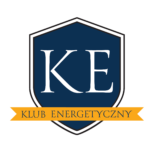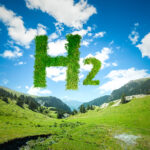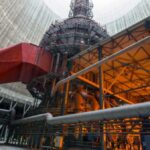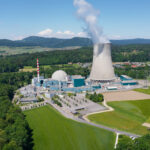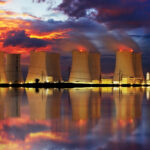Nuclear power for Poland. Who will supply the technology?
Poland’s first conference bringing together key nuclear power technology suppliers was held on 22 September 2022. The event was organised by the Energy Club and the Faculty of Management at the University of Warsaw.
Despite the differences in technological and business solutions, one thing is common to all three bids. All suppliers declare that, in the first phase, the share of Polish companies’ so-called local content may amount to around 50% of the investment value. In later phases, this share will increase.
EDF
French EDF’s proposal to Poland includes building third-generation EPR water-pressure reactors. The company operates reactors in France, the UK, Finland and China. It is currently also planning to build six EPR reactors in India.
Our solutions are highly flexible in the event of drops in energy demand. "Within 20 minutes we can change the power output between 20% and 100%, depending on the level of grid load, and precisely control the capacity of our power plant to generate energy,"
Thierry Deschaux, President, EDF
Mr Deschaux highlighted the participation of Polish companies in the project. EDF has already spoken to a hundred potential Polish suppliers who could take part in the construction of a nuclear power plant in Poland. The company is not limited to engaging Polish entrepreneurs. It also wants to involve them in projects across Europe. EDF has already certified 70 Polish companies for that purpose.
We declared from the outset that for the first reactors of the Polish nuclear programme local content would be as high as 50%, and for the construction of all six reactors the ultimate share of Polish companies would be 60-70%.
Thierry Deschaux, President, EDF
Mr Deschaux also indicated that in the UK the company is currently building two reactors and more than 60% of the project value is contracted with local, UK-based companies.
KHNP
In turn, Mr Min Hwan Chang, a representative of the Korean corporation KHNP, estimated that at the beginning the local Polish contribution could below 50%, but during construction of subsequent units it would reach 50% and later 70%. The Koreans are offering to build six units with APR1400 reactors. As Mr Min Hwan Chang pointed out, if the Korean bid is selected, KHNP envisages cooperation with Polish companies in three stages:
In the first stage, cooperation would be about what Polish companies can supply immediately. In the second phase, we would focus on what they can deliver in cooperation with Korean companies. The third stage is when a Polish supplier can carry out the task after acquiring the relevant competence.
??
KHNP’s ambition is that Polish companies can manufacture all that is necessary for the operation and maintenance of nuclear power plants for 60 years.
Mr Min Hwan Chang of Korea’s KHNP demonstrated the company’s credibility and its ability to deliver the project on time and on budget. He pointed to the example of the Barakah power plant in the United Arab Emirates. It consists of four APR1400 reactors, the same as those proposed to Poland by KHNP. Two of them are already in operation. The construction of two other units is close to completion.
The cost of the Barakah project will ultimately amount to $24bn, a 20% increase from the originally planned $20bn. The main reason is inflation over more than 10 years of construction.
Westinghouse
In September 2022, US-based Westinghouse submitted a bid to the Polish government. It proposed the construction of the AP1000 reactor. Three such nuclear units are operating in the US and another four are being built in China. It should be emphasised that Poland’s interest is that as much money as possible stays in the country. Westinghouse already has an office in Kraków and has been preparing a feasibility study for a year, working closely with subcontractors.
We have experience in building the supply chain. For our project, we would like to use 50% of the supplies from Polish industries.
Joel Eacker, Vice President for New Nuclear Projects, Westinghouse
We estimate orders for Polish companies at more than PLN 100bn throughout the project.
Mirosław Kowalik, President, Westinghouse Poland
Westinghouse’s representative stressed that Poland’s interest is that as much money as possible stays in the country. He mentioned that the company already has an office in Kraków and has been preparing a feasibility study for a year, working closely with subcontractors.
Westinghouse has also signed MoUs with a number of Polish companies, allowing for the exchange of technical information. It thus has the knowledge of which companies can join the supply chain and at what point. Many Polish companies are already working for the nuclear industry.
Joel Eacker, Westinghouse Vice-President, presenting the advantages of the AP1000 reactor at the conference, mentioned that it has passive safety systems. This means that reactors do not require any power supply. In addition, they have many components from older proven models, but also the latest technology, including modular design.
Westinghouse nuclear units are significantly smaller than competitor’s products. Their construction also requires far less materials such as concrete and steel. The AP1000 also has the nuclear power industry’s first fully digital control system, as well as a high availability factor.
If this is the technology chosen by the government, the first Polish AP1000 would be the eleventh in the series. He added that the company is confident that it can deliver the product on time and on budget.




